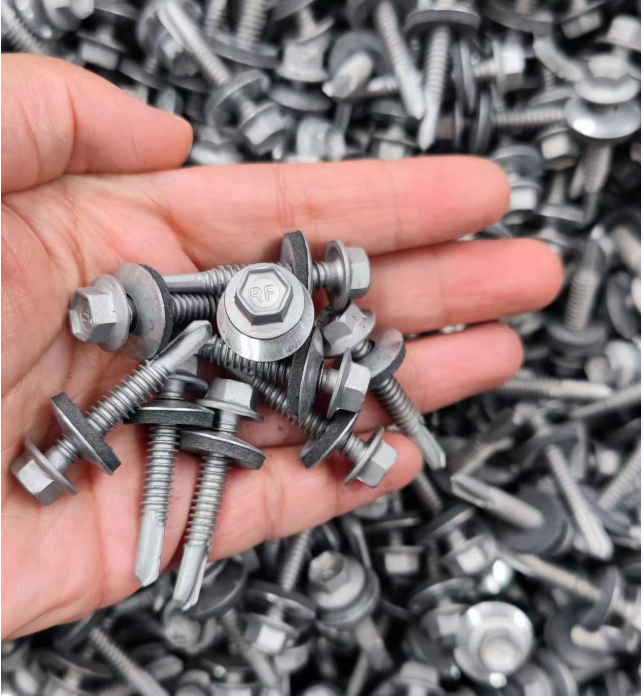Drywall Screw Load Capacity and Pricing Information for Construction Projects
Understanding Drywall Screw Load Capacity and Price List
When it comes to construction and home improvement projects, understanding the load capacity of drywall screws is essential for ensuring a durable and stable installation. Drywall screws are specially designed to secure drywall sheets to wooden or metal studs, and their load capacity plays a crucial role in determining how well they hold over time. This article delves into the factors affecting drywall screw load capacity and offers insights into typical pricing, helping you make informed decisions for your projects.
What Is Load Capacity?
Load capacity refers to the maximum weight a screw can support without failing or pulling out. This metric is vital because improper load management can lead to drywall sagging, cracking, or even complete failure of the installed panels. Several factors influence the load capacity of drywall screws, including
1. Screw Type There are different types of drywall screws, such as coarse-thread and fine-thread screws. Coarse-thread screws are typically used for wood studs, while fine-thread screws are suitable for metal studs. The choice of screw affects its grip and, consequently, its load capacity.
2. Diameter and Length Generally, thicker screws can handle more weight. Most common drywall screws range from 6 to 10 in diameter. Lengths vary from 1 inch to 6 inches, with longer screws providing better anchorage, especially in thicker materials.
3. Installation Method The way a screw is installed (e.g., whether it is driven straight or at an angle) can impact its holding power. Proper installation techniques enhance load capacity and reduce the risk of failure.
4. Material Being Fastened The load capacity can also differ based on the materials being secured. For instance, drywall attached to solid wood studs will have a different load capacity compared to drywall secured to metal studs.
5. Environmental Factors Humidity, temperature, and other environmental conditions can affect the integrity of screws and the materials they are installed in. Being aware of these factors is crucial when considering load capacity.
Pricing Overview
The price of drywall screws can vary significantly based on several factors, including type, size, and brand. Here’s a general overview of what you might expect regarding pricing
drywall screw load capacity pricelist

- Basic Coarse-thread Drywall Screws (1-1/4 inch) These typically range from $5 to $10 for a box of 100 screws. - Fine-thread Drywall Screws (1-1/2 inch) This type may be slightly more expensive, ranging from $6 to $12 for a box of 100. - Specialty Screws Screws designed for specific applications, such as those resistant to rust or screws with enhanced load capabilities, can cost anywhere from $10 to $20 per box. The price may also increase based on bulk purchasing options.
It’s important to consider that while the initial cost of screws might seem low, skimping on quality by purchasing the cheapest option could lead to higher costs down the line due to potential failures and subsequent repairs.
Making Informed Choices
When planning your drywall installation, it’s crucial to choose the right screws based on load capacity requirements and project needs. Here are some tips for making informed choices
1. Consult Load Capacity Charts Many manufacturers provide load capacity charts with their products. These charts can help you understand the specific load rating for each type of screw.
2. Buy Quality Products Investing in high-quality screws can save money in the long run by ensuring a more secure installation and reducing the risk of failure.
3. Evaluate Your Environment Consider the specific conditions in which your drywall will be installed. For areas with high moisture, opt for screws that are treated for corrosion resistance.
4. Seek Professional Advice If you are unsure about which screws to use, consulting with a contractor or building professional can provide valuable insights.
Conclusion
Understanding drywall screw load capacity and the associated pricing is crucial for any construction project. By considering various factors influencing load capacity and making informed purchasing decisions, you can ensure a successful drywall installation that stands the test of time. Whether you're a DIY enthusiast or a seasoned contractor, prioritizing the right materials will always lead to better outcomes in your projects.
-
Top Choices for Plasterboard FixingNewsDec.26,2024
-
The Versatility of Specialty WashersNewsDec.26,2024
-
Secure Your ProjectsNewsDec.26,2024
-
Essential Screws for Chipboard Flooring ProjectsNewsDec.26,2024
-
Choosing the Right Drywall ScrewsNewsDec.26,2024
-
Black Phosphate Screws for Superior PerformanceNewsDec.26,2024
-
The Versatile Choice of Nylon Flat Washers for Your NeedsNewsDec.18,2024










